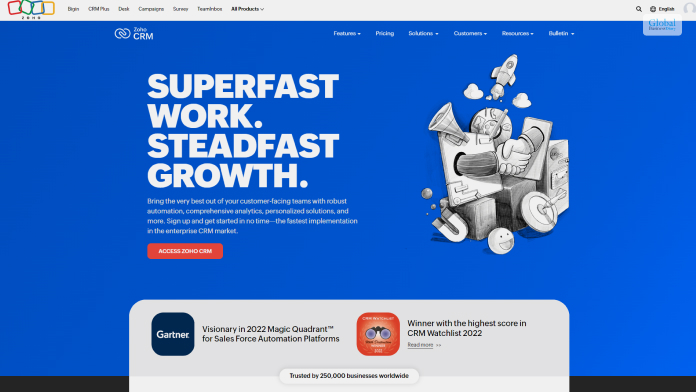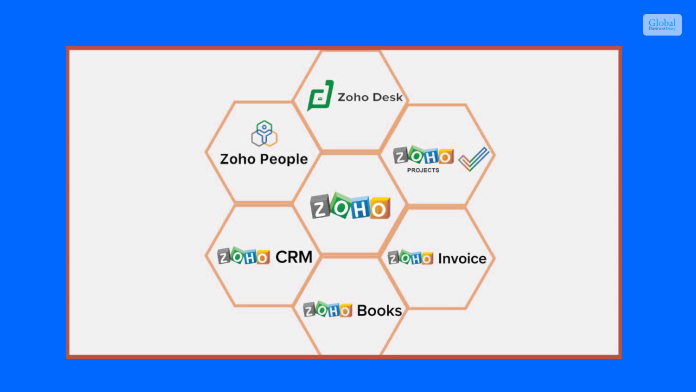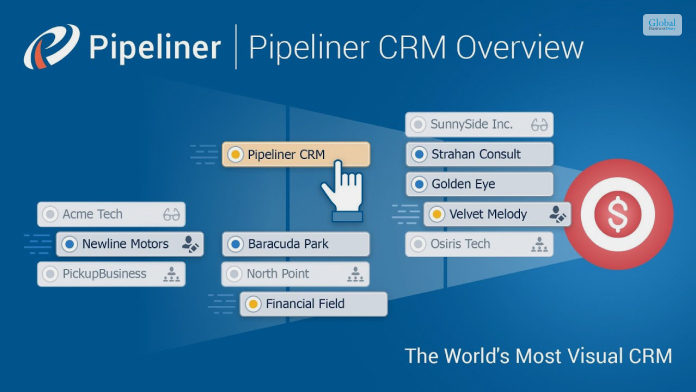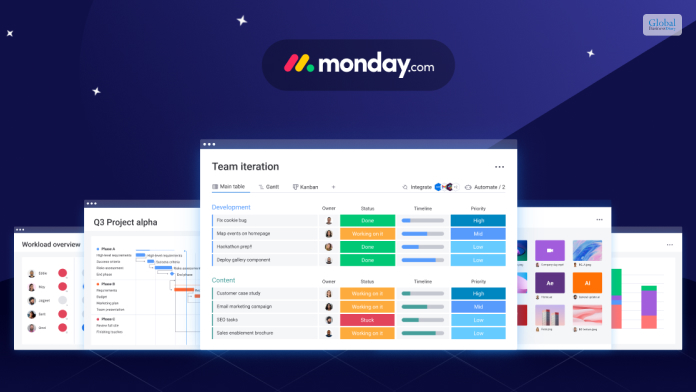Zoho CRM – Best Features, Pricing, Pros, Cons, And Alternatives

Zoho CRM is a customer relationship management and lead management software that is popular among small businesses that are in their phase of growth. As clients and customer starts growing for a company, the Zoho CRM provides the extra features and quantity that the company needs. The free plan of Zoho also comes with numerous useful features.
In this article, you will mainly learn about one of the popular CRM software systems, the Zoho CRM. Furthermore, we will discuss the plans available if you want to purchase the software. Furthermore, you will learn what are the major features that Zoho CRM has that your business can benefit from.
Finally, we will discuss why this software system is a great option for your business, along with a few pros and cons regarding the same. Hence, to learn more about Zoho CRM, read on through to the end of the article.
Zoho CRM – A General Overview Of The Platform

A review article on Forbes.com puts it rightly –
“Zoho CRM makes it easy for newcomers to get started with a CRM, especially if they’re not familiar with the software. The free plan includes just enough of the basic features to be helpful for an individual or an ultrasmall company. And the interface is intuitive and clean, which makes it even easier to learn to use.”
This is one of the major factors that the Zoho CRM API is very popular among small businesses. Furthermore, the software system comes with a lot of features that are not only helpful for small businesses only, but for growing businesses as well.
Zoho CRM Pricing

In the following table, you will get the entire pricing and plans of the Zoho CRM:
| Plans | Monthly Pricing | Annual Pricing |
|---|---|---|
| Zoho CRM Free | Free | Free |
| Zoho CRM Standard | $20 per user per month (annual billing) | $14 per user per month (annual billing) |
| Zoho CRM Professional | $35 per user per month (annual billing) | $23 per user per month (annual billing) |
| Zoho CRM Enterprise | $50 per user per month (annual billing) | $40 per user per month (annual billing) |
| Zoho CRM Ultimate | $65 per user per month (annual billing) | $52 per user per month (annual billing) |
| Zoho CRM Plus | $65 per user per month (annual billing) | $52 per user per month (annual billing) |
| Zoho One | $105 per user per month (annual billing) | $90 per user per month (annual billing) |
What Are The Major Zoho CRM Features?

Once you do a Zoho CRM login, you will find the Zoho interface being very user-friendly. Once in the software, you will also come across a variety of customization features. You can also create personalized layouts, which you can save, clone, and share. With a many automation features, you can simplify your complicated tasks.
Furthermore, Zoho also comes with an AI assistant. According to the official website of Zoho CRM Plus,
“Zoho’s AI assistant, Zia, guides your teams by predicting business trends, suggesting the best times to contact customers, identifying sentiments in emails and tickets, and providing intelligent business dashboards.”
Another great feature of Zoho is that it can be integrated with all the different Zoho software systems. Furthermore, the Zoho CRM supports other systems too.
Why Is Zoho CRM A Great Option For Your Business?

Being one of the best software options for lead management, Zoho CRM helps in unifying your business and marketing processes.
According to the official website of Zoho CRM,
“Zoho CRM Plus unifies your sales, marketing, customer service, and every other customer-facing team on one platform so you can deliver exceptional customer experiences to every customer. Unify business data, customer engagements, ROI, and more—all while keeping your customer at the center of everything you do.”
With this CRM, you will be able to provide your customers with the needed convenience of omnichannel engagement. With Zoho, you can engage with your customers at every level of the customer lifecycle. You can always have full access and full information about your customers through different channels, as you will get real-time notifications on the software system.
Zoho CRM – The Major Pros And Cons

The following are some of the essential pros and cons that you must be aware of before you make a purchase of Zoho CRM:
Pros Of Zoho CRM
Here are the major pros of Zoho CRM:
- Zoho CRM comes with a free plan but with limited features.
- The pricing plans are affordable and friendly for small businesses.
- All the pricing plans contain the automation feature.
- You can integrate the CRM with various other Zoho software systems as well as other software systems.
- The CRM is simple and easy to customize.
- There is a mobile app as well, which allows remote access.
- If you do not like the software, you will get the money back in 30 to 45 days.
Cons Of Zoho CRM
Here are the cons of Zoho CRM that will allow you to make a decision while purchasing:
- The AI features come only the top-tier plans.
- There are only a limited number of custom fields.
- There are no integrations available for free plans.
Zoho CRM Alternatives

We think that Zoho CRM can be an excellent choice for a small business. However, it is not the best option for large businesses. According to Forbes.com,
“While Zoho CRM is an excellent entry-level CRM, it may not be the best choice for every business. You can find plenty of Zoho CRM alternatives that could fit your CRM strategy better.”
The following are the six top alternatives of Zoho CRM that you will find easily:
1. ActiveCampaign
2. Monday.com
4. Salesforce Pardot
5. LeadSquared
6. Hatchbuck
Summing Up
If you are running a startup, then there cannot be any better CRM solutions available than Zoho CRM. Furthermore, you can surely choose the alternatives, as per your needs and likings. However, when it comes to a combination of features and pricing, Zoho CRM is the best option of all. What is your review of this software system? Share your reviews regarding Zoho CRM in the comments section below.
Read Also:













